Categories:
- ['Health']
Status:
Completed On:
Start Date:
Cost:
Construction of Gajal Dispensary
Villagers have to walk up to 6 km to get basic medical treatment.
In June 2019 three volunteer doctors visited the Dareda Kati Clinic and two other health centers in Arri and Gidas. During the consultations and meetings with medical staff, they evaluated the needs of the dispensaries and clinics regarding facilities, supplies and training. Based on their observations and data provided by the World Health Organization, Karimu developed with the government a health program to improve the overall health in Ayalagaya Ward prioritizing the most common interventions. It includes the expansion of the Dareda Kati Clinic and the construction of a dispensary in Gajal to serve the remotest areas of Ayalagaya Ward.
Gajal´s sub-villages lie the farthest from the Dareda Kati Clinic. Villagers have to walk up to 6 km to get basic medical treatment. The farthest they have to walk, the less likely they are to seek care. Long distances also increase the risks in medical emergencies. Gajal dispensary will provide consultation with a doctor or nurse, pre- and postnatal care, treatment of HIV/AIDS and other diseases, family planning and vaccination, among others.
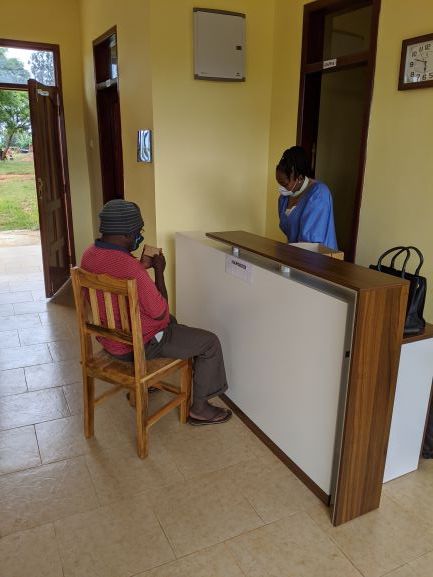
Karimu worked with the Secretary of Health to accelerate its planned opening before COVID-19 hit the area. Originally scheduled for opening in September, this has been accelerated into May 2020 with Karimu completing the construction work and funding essential furniture and medical equipment.
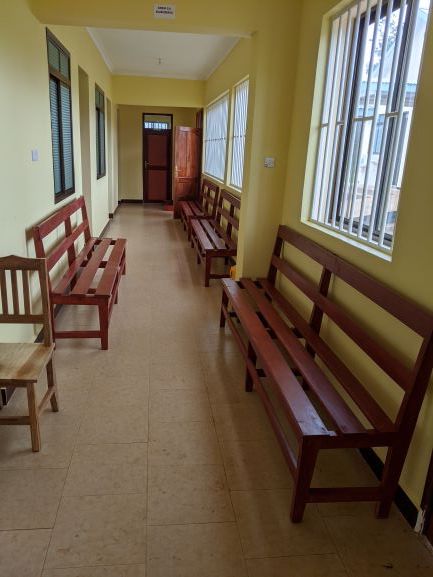
Meanwhile the government has hired the medical staff, delivered the medical supplies and medications, and secured the budget for the monthly operating costs. This is the first dispensary that Karimu has designed and built from scratch taking detailed input from local medical professionals.
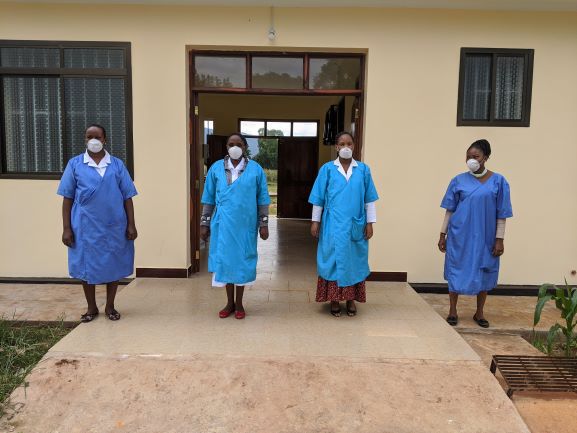
This project encompassed:
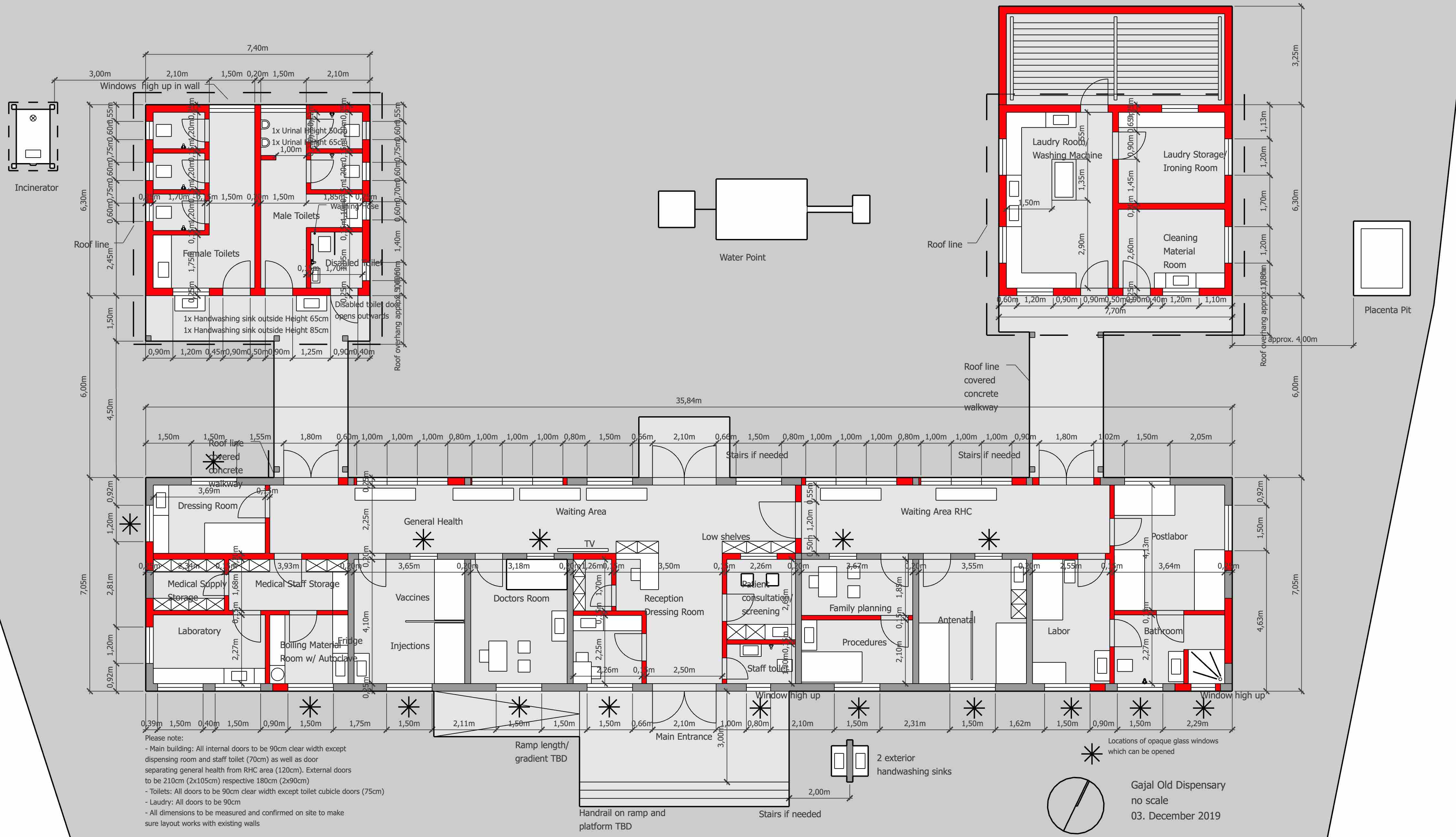
-
Construction of main building with
- Prenatal, labor and postnatal rooms
- Doctor room and patient consultation/screening room

- Dressing room
- Family planning room
- Dispensing, boiling material and cleaning material room
- Medical staff and medical supply storage
- Laboratory
- Kitchen
- Toilet
- Reception and waiting area
-
Construction of toilets for patients
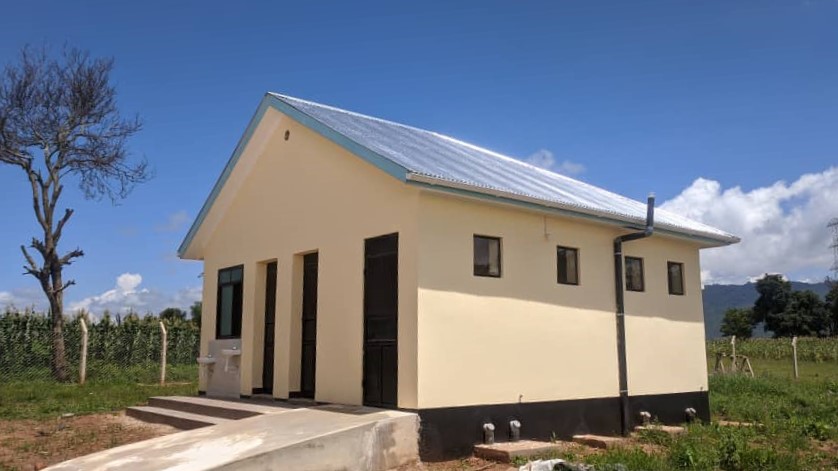

- Construction of hand-washing sinks to ensure all patients can wash their hands before entering the building
- Construction of a small laundry and an area to keep the cleaning material
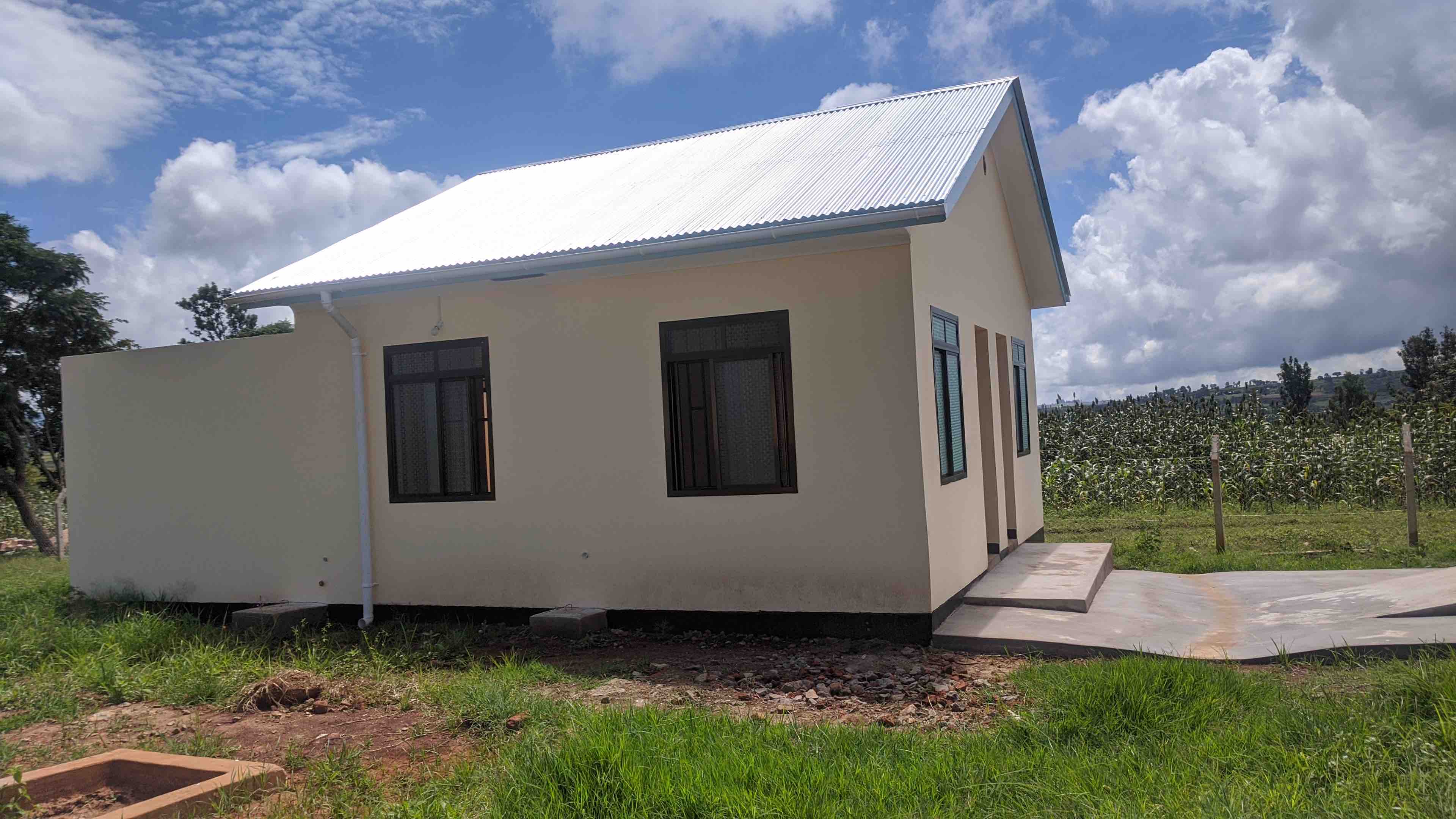
- Installation of electricity and wiring
- Building of an incinerator and placenta pit

- Donation of autoclave
- Donation of TV to show educational videos to all patients
- Donation of furniture, such as reception table, benches, chairs, shelves, among others
- Donation of medical equipment and supplies, such as autoclave, heater, digital blood pressure equipment, otoscope, patella hammer, nebulizer with mask for adult and children, vacuum extraction set, binocular microscope, among others
Expected benefits:
-
Increased access to health services
-
Increase in the use of medical services provided
-
Reduced mortality rate, particularly among pregnant women and young children
-
Improved health throughout the surrounding villages due to easier access to health care and preventive health services
Cost: The total cost of the project was $115,865.99. It breaks down as follows:
-
Construction of main building, patient bathrooms, laundry, incinerator, and placenta pit: $94,980.78
-
Fence, gutters, pavement around buildings and from gate to entrance: $8,048.10
-
Installation of electricity: $588,19
-
Furniture: $6,741.30
-
Medical equipment: $5,968.48
The community contributed significantly to this project. They funded 14.72% of the total cost or $17,121, covering:
-
Clearing the land
-
Building the whole foundation
-
Supplying bricks and raising all the walls
-
Building part of the roof
The government provided:
-
Medical staff
-
Refrigerator to keep vaccines and certain medicine
-
Medical furniture
-
Monthly funding to keep the dispensary running, including funds for medicine, medical supplies, electricity bills, etc.
Karimu contributed $99,205.85.
Learn more about Karimu Health Program .


